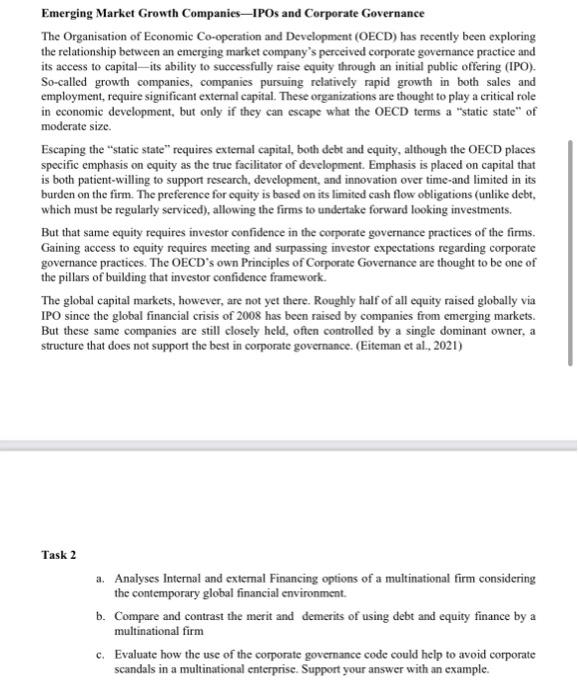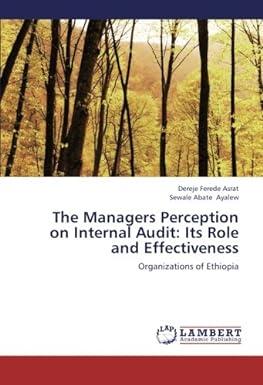Emerging Market Growth CompaniesIPOs and Corporate Governance The Organisation of Economic Co-operation and Development (OECD) has recently been exploring the relationship between an emerging market company's perceived corporate governance practice and its access to capital-its ability to successfully raise equity through an initial public offering (IPO). So-called growth companies, companies pursuing relatively rapid growth in both sales and employment, require significant external capital. These organizations are thought to play a critical role in economic development, but only if they can escape what the OECD terms a "static state" of moderate size. Escaping the "static state" requires extemal capital, both debt and equity, although the OECD places specific emphasis on equity as the true facilitator of development. Emphasis is placed on capital that is both patient-willing to support research, development, and innovation over time and limited in its burden on the firm. The preference for equity is based on its limited cash flow obligations (unlike debt. which must be regularly serviced), allowing the firms to undertake forward looking investments. But that same equity requires investor confidence in the corporate governance practices of the firms. Gaining access to equity requires meeting and surpassing investor expectations regarding corporate governance practices. The OECD's own Principles of Corporate Governance are thought to be one of the pillars of building that investor confidence framework. The global capital markets, however, are not yet there. Roughly half of all equity raised globally via IPO since the global financial crisis of 2008 has been raised by companies from emerging markets. But these same companies are still closely held, often controlled by a single dominant owner, a structure that does not support the best in corporate governance. (Eiteman et al., 2021) Task 2 a. Analyses Internal and external Financing options of a multinational firm considering the contemporary global financial environment b. Compare and contrast the merit and demerits of using debt and equity finance by a multinational firm c. Evaluate how the use of the corporate governance code could help to avoid corporate scandals in a multinational enterprise. Support your answer with an example







